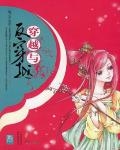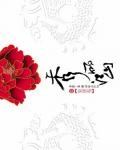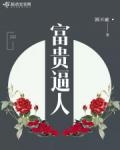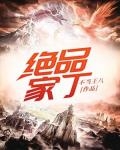The second volume is full of glory and splendor in the capital, and the spirit is full of vitality in the foggy city. Chapter 306: The Little Prince (Part 1)
This chapter's subtitle: I don't use any honorifics.
Monday afternoon, July 18, 1921.
Yuan Yan, who finally received the invitation, finally took a car to her residence under the Di Palace - the Embassy of the Empire of Japan in London.
The embassy is located on Piccadilly Street in the City of Westminster, a bustling area of London.
At the west end of Piccadilly Street is the famous real Hyde Park (New York's Hyde Park is named after the real Hyde Park), and at the east end is the Piccadilly Circus subway station, which was completed in 1906. The subway line runs under this street.
In addition to the Japanese Embassy, there are many famous buildings and attractions on this street.
For example, Fortnum and Mason, a high-end department store founded in 1707 during the reign of Queen Anjou.
For example, the Royal College of Art, founded by George III in 1768.
For example, the earliest bookstore in London was Hatchards Book Store, which opened in 1797.
Seeing these ancient monuments with a long history and rich cultural significance, Yuan Yan couldn't help but admire in her heart. It is worthy of being the British Empire. It still has some historical heritage.
Then he instructed those around him, "Here, here, here... we need to set up time bombs in advance! Put in a lot of explosives. Did you write that down?"
"I've got it down, Master."
The Japanese Legation consisted of three Victorian-style buildings, all four stories high. It looked quite grand and imposing, at least much more impressive than the Chinese Legation on Portland Street.
Our Master Yuan had eaten there and knew that it was a small three-story house.
However, the Japanese embassy was a street-facing building with no garden or anything, which reduced the difficulty of the raid.
"Second Master, we're here."
"Well, help me out of the car."
So Yuan Yanshu's "male servant" and "maid" helped him get out of the car with difficulty, and he saw Inoue Chengmei waiting at the door at a glance.
When people saw Master Yuan using a cane and even needing someone to support him, they couldn't help but ask in surprise, "Mr. Yuan, what's wrong with you..."
"Inoue-kun, I fell off my horse a few days ago, and now I can't even walk." Yuan Yan smiled bitterly and asked in Japanese with a genuine Osaka accent, "Can the two of them help me get in?"
Inoue Narumi glanced at the baby-faced servant with a shaved beard, then at the petite and cute maid, and after a moment's hesitation, she nodded and said, "Of course."
So he led the three of them to a reception room where there were quite a few people sitting, both white and yellow, but of course no black people.
It seems that His Majesty Di Gong, who was born in 1901 and is now 20 years old, has a very busy schedule.
They came to the UK on behalf of the Japanese government to improve diplomatic relations, so naturally they cannot run around as they please.
Yuan Yanshu couldn't "run" around now, but his baby-faced male servant and cute female servant could. He brought these two here just to scout the place.
There was no need to go into every detail, as they had the architectural drawings of the Japanese Legation. However, some details still needed to be seen in person to be safe.
So Xiao Pohai and Gu Mengmeng took the opportunity to go to the bathroom and sneak out for a walk.
"Second Master, that blueprint is very accurate, the general orientation is exactly the same."
"Mr. Hongjian, there are indeed some guards, but not too many."
Well, that's right.
As he expected, the fact that these two people were able to wander around the embassy showed that the security was not very tight.
However, it is estimated that after "Operation Tai Sui", the security level of politicians around the world will be greatly improved. From this perspective, he has done a great thing.
Our Master Yuan waited for more than half an hour. After all, he was not considered an important figure yet.
Around three o'clock in the afternoon, it was finally his turn.
The male servant and the maid carried him to the door of the meeting room. He limped in, leaning on a cane in one hand and holding a briefcase in the other...
Sitting in the middle seat was a big boy whose hair had just grown out.
The 21-year-old Japanese Crown Prince looked too young. So he looked neither majestic nor even mature.
In those days, Japan was obsessed with leaving Asia and joining Europe. The people in the room, including Hirohito, were dressed in Western style, wearing the same morning coat as their descendants.
Moreover, Yuan Yanshu was a foreigner, not a subject of Japan, so he only needed to follow Western etiquette.
So he tried his best to stand up straight, bowed, and said in authentic Osaka dialect: "I pay my respects to His Royal Highness Prince Di."
The three East Asian languages of Chinese, Japanese and Korean are probably the languages with the most honorifics in the world.
For example, the emperor Seres had many ways to refer to himself, but in English there is only one "WE". This is also the way to refer to oneself in academic English. When writing English papers, you don't use "I" but "WE".
Moreover, the three languages of Chinese, Japanese and Korean all have very complicated "honorific" grammar, including honorific verbs, honorific auxiliary verbs, honorific sentence patterns, self-deprecating verbs, solemn language, and so on.
Yes, Chinese also has similar grammar. For example, in the phrase “come to my place”, there are “临临”, “光临”, “驾临”, “惠临”… and many “X临”.
In fact, one of the purposes of the vernacular movement was to eliminate such feudal remnants.
Later, a very revolutionary political party came to power. The party’s top leader was obviously well-versed in classical Chinese, but the articles he published to the outside world were all written in the plainest language possible.
After liberation, students in Seres learned to write in this vernacular style. As a result, some honorifics became written language, rarely used in daily life. Others exist only in ancient texts, and aside from a few chuunibyou sufferers, virtually no one uses them.
Furthermore, this party was extremely egalitarian, and everyone addressed each other as "comrade," which was simply a fancy way of saying "surname + given name + comrade" or official title. Even the "name, courtesy name, and pseudonym," used only by intellectuals, gradually fell into disuse.
To be honest, there is no point in calling this thing, and it will not add any combat power. Inside the artillery party, people call each other "Mr. So-and-so", "Brother So-and-so" and "Seat X", but in the end they are still beaten by the "comrades".
In modern times, when going on a blind date, no one would ask, "May I ask your name?"
People would not answer like this: "My name is Wang, my maiden name is Erya, and my name is Mary. Please tell me the following:? "
"My surname is Zhang, my given name is Tiedan, and my nickname is Tom..."
Of course, some people call it that the essence of all ages has been destroyed here.
This question is a matter of opinion.
However, it must be said that compared with Japan and South Korea, Serbia, after the great revolution, is much more equal, and it is equality in every sense of the word.
Our Master Yuan learned Japanese using the " linguistic " technique, so his language proficiency should be comparable to that of a native Japanese speaker. However, he pretended to be clueless, using no honorifics but casually speaking the same terms as his peers.
Who told him he was a Serbian? The Japanese present, including Hirohito, just thought that his Japanese was not good enough.
"So you're the one famous in Britain and the United States..." The Japanese Crown Prince nodded in return and then said his name in stiff Chinese, "Mr. Yuan Yanshu."






